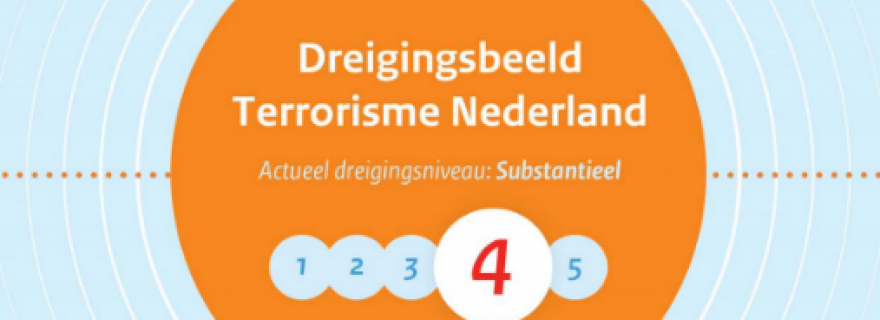Risk perception and possibilities for risk communication
Concerns about a possible terrorist attack have risen in the past 5 years in the Netherlands and the current risk communication strategy by the Dutch government could gain from several changes.
The last fifteen years have been marked by several terrorist attacks in European countries, for example in Paris in January and November 2015, or Manchester in May 2017. The summer of 2017 marked a series of threats in the Netherlands. According to the NCTV, the current threat level in the Netherlands is substantial, implying that a terrorist attack in the Netherlands is likely to occur. Recent attacks throughout Europe may have an impact on the risk perception of the Dutch population. Prior research has shown that a population’s risk perception can increase due to an attack in another (Western) country.
Our study published today sought to assess risk perception in the Netherlands related to the terrorist threat and possibilities for risk communication by the Dutch government related to the terrorist threat. Using various sources of information (a literature review, an analysis of existing surveys, an online survey sent out to a representative sample of the Dutch population, Google search analyses and interviews with sixteen professionals), we found that the Dutch population reacts relatively calmly to attacks in neighboring countries and the possible risks of a terrorist attack.
Perception of risk in the Netherlands and behavioral adjustments
Careful analyses of existing survey reports showed that concerns about a terrorist attack in the Netherlands have slightly increased in the Netherlands between 2012 and 2017. A trend analysis of Google search results showed a clear peak in searches carried out after various attacks in neighboring countries (the attacks occurred between January 2015 and June 2017) when searching for terms relating to terrorism in the Netherlands. The survey sent out for this study showed that: respondents were more worried about an attack in their place of residence than to personally become a victim of an attack. These results indicate that, even though the fear of a terrorist attack slightly increased in the Netherlands, the fears remained relatively low. However, we did see a slight rise in the fear of a terrorist attack. Closely related to the perception of risk are possible behavioral adjustments as a response to a terrorist threat. However, our study showed that only a few people were inclined to avoid crowded places because of their fear of a terrorist attack. Mobility changes are relatively uncommon.
Communication about terrorist threats in the Netherlands by the Dutch government
Our study shows that communication about the terrorist threat and the capabilities of the Dutch government to prevent a terrorist attack is seen as sufficient by the Dutch public. Approximately 85 percent of the respondents of the survey felt that the government acted ‘reasonably’, ‘sufficient’ or ‘well’ to prevent a terrorist attack. However, slightly more than half of the respondents (50.2%) felt that the Dutch government was hardly able to prevent a terrorist attack. A somewhat tentative explanation for this could be that the government is able to paint a realistic picture of its activities and the possibilities of preventing a terrorist attack.
When asked if the Dutch public is able to assess the activities of the NCTV, the current threat level and the terrorist threat assessment Netherlands (DTN), many of the respondents were unable to do so. Possibilities for the government therefore lie in actively informing the Dutch population of the terrorist threat, how to act during a possible threat and changes in the threat level. Our online survey found that many subgroups in the Netherlands receive their information from other sources: young people are more active on social media, whereas older age categories find their information via traditional (news) sources. Our survey also found that a clear message on the current threat level should be the aim of the Dutch government.
Overall, it appears that the Dutch population reacts relatively calmly in response to a possible terrorist threat in the Netherlands and terrorist attacks in European countries. The Dutch public would like to be informed about the current threat level and likelihood of a terrorist attack happening. Informing the Dutch public by means of focusing on various subgroups might be helpful in conveying this information.
This report has been written by Marieke Liem, Sanneke Kuipers and Jessica Sciarone. The English summary can be found here.

